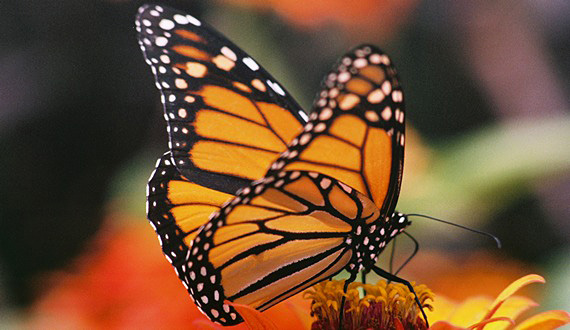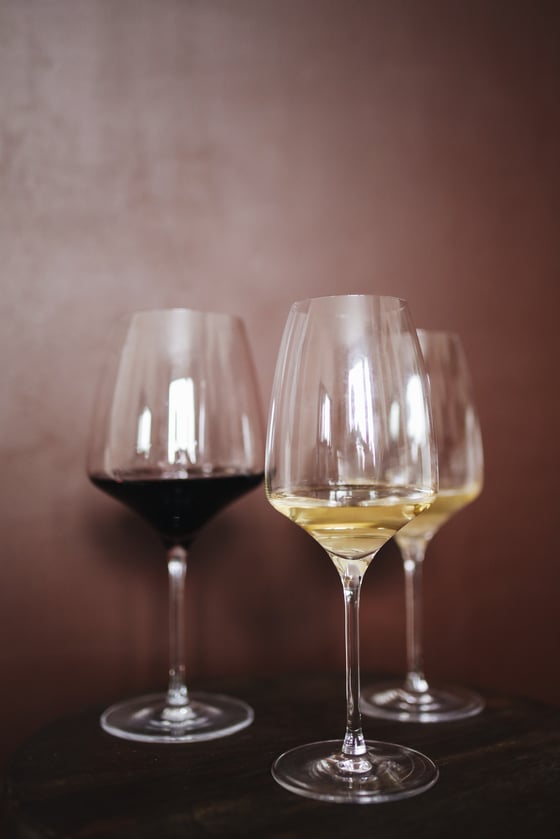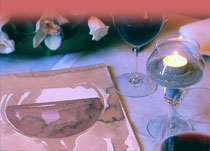SIPS . . . 
JORDAN WINERY PLANTS POLLINATOR SANCTUARIES TO CREATE HABITAT FOR NATIVE BEES, WESTERN MONARCH BUTTERFLIES Three-year program with Pollinator Partnership focuses on at-risk and essential insects Jordan Winery
Jordan Vineyard & Winery announces a multi-year planting program to turn acres of non-native grassland into preserved habitat for vital pollinators, including the at-risk Western Monarch butterfly, native bees and other insects. In collaboration with Pollinator Partnership, the world’s largest non-profit dedicated exclusively to the protection and promotion of pollinators and their ecosystems, Jordan is restoring habitat across four sites on its sustainably certified estate this year with plans to expand habitats over the next 2-3 years. This project at the 1,200-acre Jordan Estate, located on the fall migratory route of the Western monarchs, will result in the largest dedicated pollinator habitat of all Bee Friendly Farming-certified vineyards nationwide, according to Pollinator Partnership.
With its diverse topography of rolling hills, grasslands, woodlands and seasonal creeks, Jordan Estate is home to vast open spaces that bloom with wildflowers every spring, but the winery saw an opportunity to do more for pollinators beyond giving them plenty of wildland to forage.
“The beauty of diversified agriculture is how far it spans in multiple directions in support of the overall ecosystem, from caring for cattle and honeybees and farming grapes to growing vegetables,” says Brent Young, director of agricultural operations at Jordan. “Although these pollinators don't have a direct impact on grapevines, creating more habitat for them is a natural extension of our approach to biodiversity at Jordan Estate.”
Over the course of a year, Young worked with Pollinator Partnership staff to identify optimal sites and materials for the pollinator sanctuaries, with a special emphasis on finding locations for milkweed. Monarch caterpillars feed exclusively on milkweed leaves. Without this plant, they cannot complete their metamorphosis into butterflies, and their populations decline. Additional plants were selected based on terrain, sun exposure, proximity to watersheds, and most importantly, which pollinators each habitat will ultimately support, including native bees, honeybees, hummingbirds and butterflies.
Guests will be able to see these young pollinator sanctuaries first-hand when the winery reopens for a series of Vineyard Hikes in honor of Earth Week, April 22-25. Tickets for the four-mile hike, which includes a seated charcuterie picnic lunch, salad from the chef’s garden and wine pairing, are $110 per person and go on sale on April 7 at www.jordanwinery.com/events. The Estate Tour & Tasting, a moveable feast for the senses from May through October that transverses the ranch, also passes these pollinator habitats.
More than 3,400 plants, comprising about 100 species (sourced from CalFlora, Cornflower Farms and S&S Seeds), will be planted across four initial sites totaling eight acres in 2021, and the first plantings occurred in late February and early March. Of these, approximately 600 milkweed plugs were planted to support monarchs. About 200 pounds of wildflower seeds, including milkweed, were sowed this winter. Native grasses, annual and perennial wildflowers, scrubs and trees were integrated to provide year-round floral resources and nesting habitats for pollinators. Blooms from seed are expected to take approximately three years to emerge and begin attracting pollinators. Additional sites have been identified on the Jordan Estate for pollinator sanctuaries, and their plantings, expected over the next few years, will be based on learnings from these first plantings. The winery expects around 10 acres to be dedicated to pollinator sanctuaries total over three years. Jordan is also working with Warm Springs 4-H in Healdsburg on a milkweed germination project to grow up to 1,000 seedlings for planting this spring.
“This is the most diverse pollinator habitat restoration program that we know of,” said Miles Dakin, Bee Friendly Farming coordinator for Pollinator Partnership. “The initiative shown by Jordan Estate is remarkable, and we are proud to have them as a Bee Friendly Farming Certified Member.”
The project has been under development for more than one year, and the pollinator sanctuary planting sites were expanded in fall of 2020 after vintner John Jordan read about the historically low Western monarch migration numbers, which have been dwindling in recent years. According to The Xerces Society, in 2020 the Western monarch butterfly “that winters along the California coast hit a low of [only 1,914] butterflies—a 99.9% decline since the 1980s.” Additionally, action is more crucial now than ever before, as “this critically low number follows two years with fewer than 30,000 butterflies—the previous record lows—indicating that the western monarch butterfly migration is nearing collapse.” According to BiologicalDiversity.org, population declines have occurred in 52 percent of native bee species.
Natives, such as bumblebees and mason bees, are vital pollinators for plants grown in the Jordan Winery garden, such as tomatoes, squash, raspberries and strawberries, to name a few. Although bees do not pollinate grapevines, they are the primary pollinators for cover crops grown between the vines, which naturally replenish important soil nutrients. Monarch butterflies, also native pollinators, are known as a flagship species for conservation, holding tremendous cultural significance.
“Honeybees get most of the attention,” says Todd Knoll, executive chef of Jordan Vineyard & Winery. “But mason bees pollinate many of the fruits and vegetables we eat—they have a 95 percent pollination rate compared to honeybees at 5 percent. Butterflies like monarchs also play an important role in the ecosystem as both a pollinator and a food source, so they cannot be forgotten.”
Jordan has been Bee Friendly Farming Certified through Pollinator Partnership since 2013. Created in 2016, Jordan’s garden apiary features seven beehives and a carefully designed bee flower garden to help promote pollinator populations. Jordan has also been the winter “vacation” home of traveling beehives that live across from Jordan’s petit verdot vineyards until they are moved to the Central Valley to complete their annual pollination of almond trees.
Through these plantings, Jordan hopes that he will inspire more landowners across the West to plant milkweed and spread awareness about the importance of protecting native pollinators. In addition to being a Certified California Sustainable Vineyard & Winery, Jordan is a member of the Sonoma and Bay Area Green Business programs, and all Jordan Estate and grower vineyards are certified Sonoma Sustainable.
ABOUT JORDAN VINEYARD & WINERY Founded in 1972, Jordan Vineyard & Winery was inspired by the great wine estates of France and the timeless connection between food, wine and hospitality. Under the guidance of second-generation vintner John Jordan, Jordan Estate is an extension of these traditions, with its iconic chateau, breathtaking views, sustainably farmed vineyards, natural habitat for wildlife and gardens for the chef’s inventive cuisine, offering a distinctive sense of place in Sonoma County wine country. Learn more at www.jordanwinery.com.
ABOUT POLLINATOR PARTNERSHIP Established in 1997, Pollinator Partnership (P2) is the largest 501(c) 3 non-profit organization dedicated exclusively to the health, protection, and conservation of all pollinating animals. Pollinator Partnership’s actions for pollinators include education, conservation, restoration, policy, and research. P2’s financial support comes through grants, gifts, memberships and donations from any interested party. Its policies are science-based, set by its board of directors, and never influenced by any donor. To make a donation in support of its mission, or for information, visit www.pollinator.org.
ABOUT BEE FRIENDLY FARMING Bee Friendly Farming is a certification program from Pollinator Partnership that provides guidelines for farmers and growers interested in promoting pollinator health on their lands. https://www.pollinator.org/bff ___________________________________________________________________ HOTEL CERRO 
|





